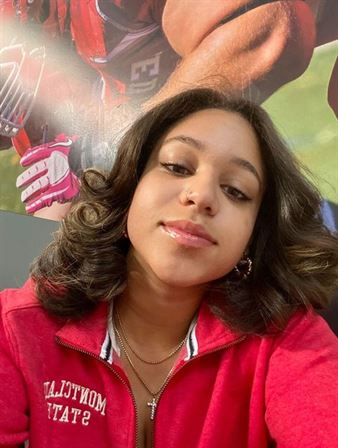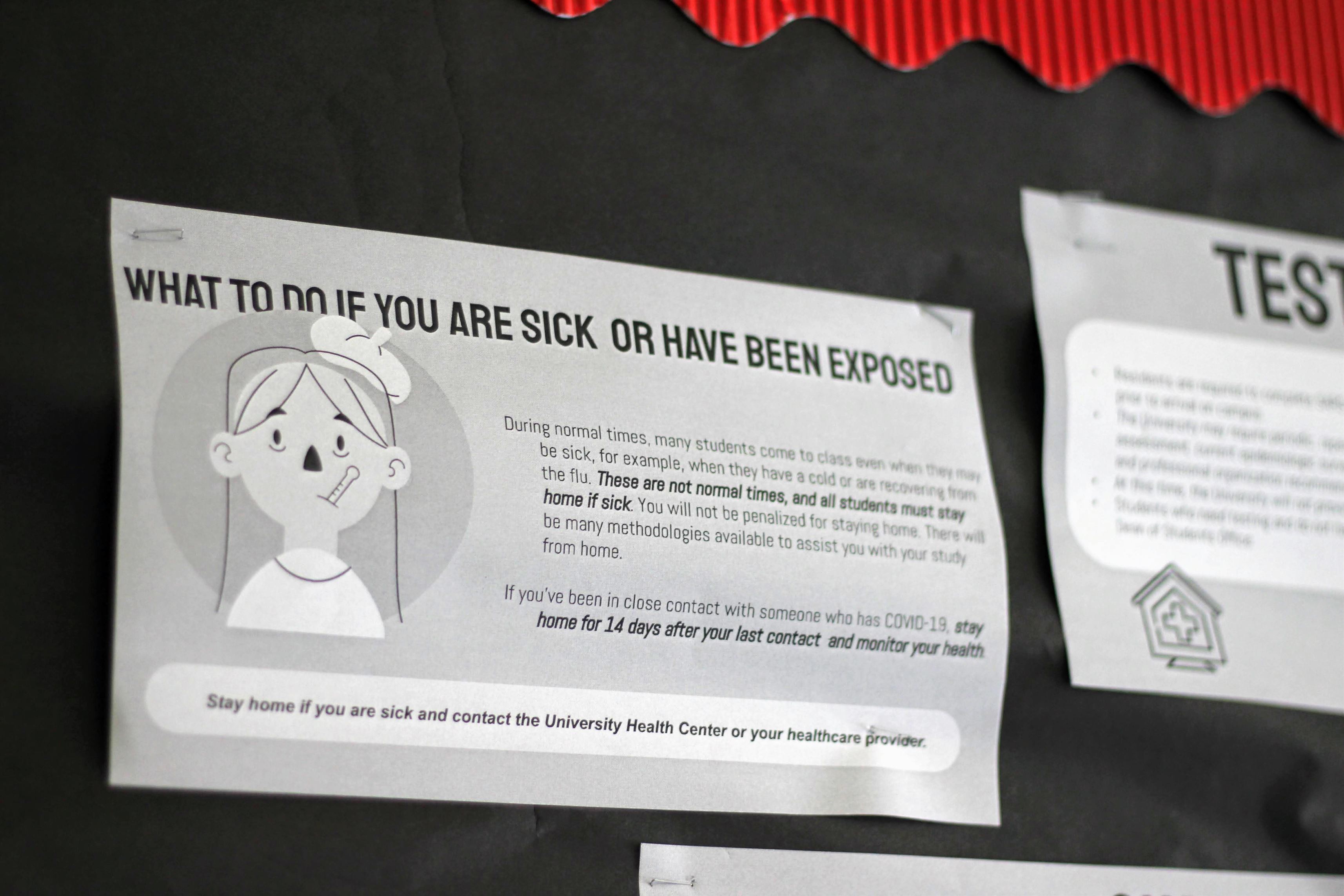Throughout the past few weeks, the omicron variant and the spike in coronavirus (COVID-19) cases have made many wary about returning in person. The university is taking steps to address the current situation, but students have expressed mixed feelings in response to these measures.
In a press briefing hosted by the Center for Cooperative Media on Jan. 5, David Adinaro, New Jersey’s deputy commissioner for public health services, told reporters about the effects omicron was having on the state.
“If you look at the CDC predictions based upon that likely growth pattern, we are probably at a point where about 95% of the cases that are occurring in New Jersey are omicron,” Adinaro said.
This is significant because the omicron variant is much more transmissible, even if the symptoms are less serious. It also raises concerns because 79% of those infected with the omicron variant are fully vaccinated. According to Adinaro, however, those who received their booster shot have high levels of protection.
Dr. Patricia Ruiz, the director of the University Health Center, emphasizes the importance of booster shots.
“Boosters are our best tool, followed by well-fitting and consistently used masks, avoiding crowds [and] staying home if sick,” Ruiz said.
That is only part of how the University Health Center plans to combat the omicron variant. Additionally, they want to spread knowledge about COVID-19 so that infections can be better managed.
“The most important initial thing we tell students to do is to stay home if they are sick (or in their room), complete Hawk Check and answer their phone when the health center calls,” Ruiz said. “When we interview students, we encourage the booster vaccine, we ask about employment off campus and we initiate contact tracing immediately, seven days a week.”
Ruiz is also a member of the Campus Health Advisory Team (CHAT), a new group on campus to help mitigate the effects of COVID-19. Margaree Coleman-Carter, dean of students and the chair of CHAT, explained its function as a tool that campus leaders can rely on.
“We follow the trends and the situations and we advise the president,” Carter said. “There are a number of experts on that group, and we advise the president as to what we think should happen on campus, as it relates to the president’s response.”

Margaree Coleman-Carter, dean of students, is also chair of the Campus Health Advisory Team. The team advises the president and other university leaders.
Sal DiMaggio | The Montclarion
The omicron variant is affecting all age groups, but Adinaro said there is a greater increase in younger individuals.
“We’re seeing all age categories are showing a large increase in infections and younger individuals are showing larger increases,” Adinaro said.
Many students have their concerns about the omicron variant and would like the university to be more cautious, while others are happy going back in person.
Holley Petrie, a junior English major, is one of those who have their worries.
“I am at high risk, and I feel as though going back to [Montclair State] will become a hot spot for [COVID-19],” Petrie said. “I’m not willing to sacrifice my health to get [COVID-19] a second time and then get penalized for not coming to class for keeping other people safe.”

Holley Petrie, a junior English major, has many concerns about returning in person for the spring.
Photo courtesy of Holley Petrie
On the other hand, students like Karelyn Guzman, a freshman psychology major, are excited to resume the academic year on campus.
“I think that as long as we take precautions and maintain our distance just as we have been doing, it should be safe to return to campus,” Guzman said.

Karelyn Guzman, a freshman psychology major, is optimistic about returning to campus.
Photo courtesy of Karelyn Guzman
Guzman is also satisfied with how the university is handling the return to campus, although she noted that it’s not perfect.
“I do think that Montclair State is trying their best to consider everyone’s needs and also doing a good job at considering safety during a very confusing time,” Guzman said. “Considering that people were very hesitant on getting their first one or two doses [of the vaccine], I do think that the new booster mandate could have been presented differently.”
Petrie, though, was disappointed when she learned the university’s plans.
“I feel as though going virtual until the end of the month is the safest way to handle this situation and less stressful,” Petrie said. “Where I live, in the suburbs, it is honestly hard to find a [place to] get a booster and/or get tested at the moment. Numbers and anxiety [are] through the roof. I believe we need to let things cool down and not rush into picking classes back up.”
Students can find COVID-19 information here, including case numbers and details on policies, testing, vaccinations and more.



